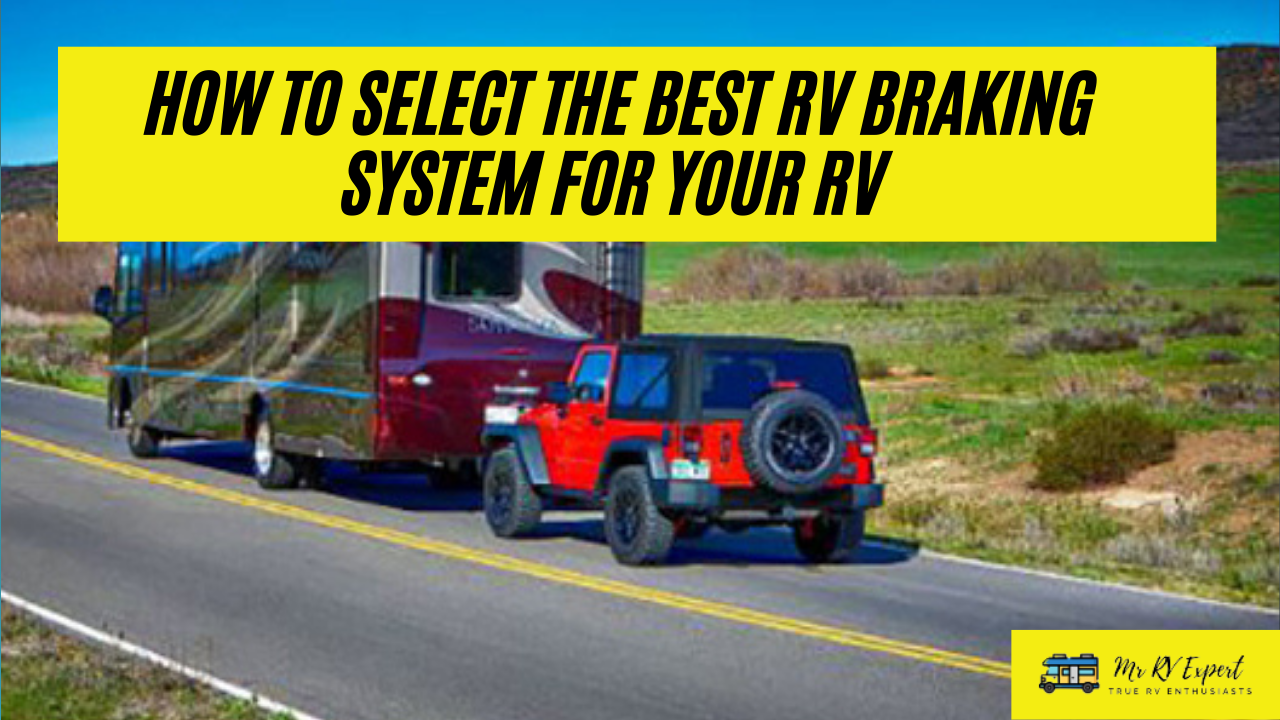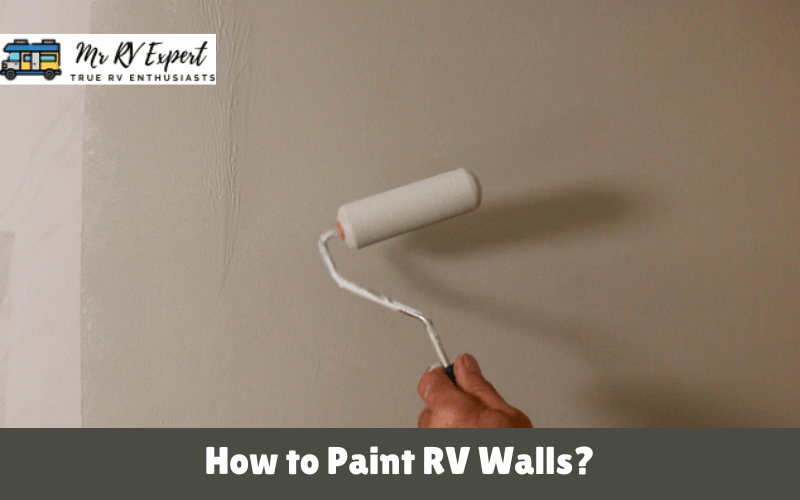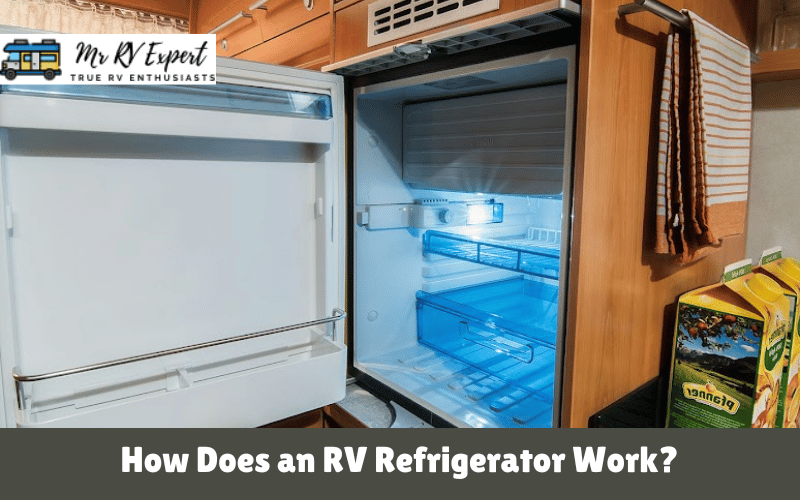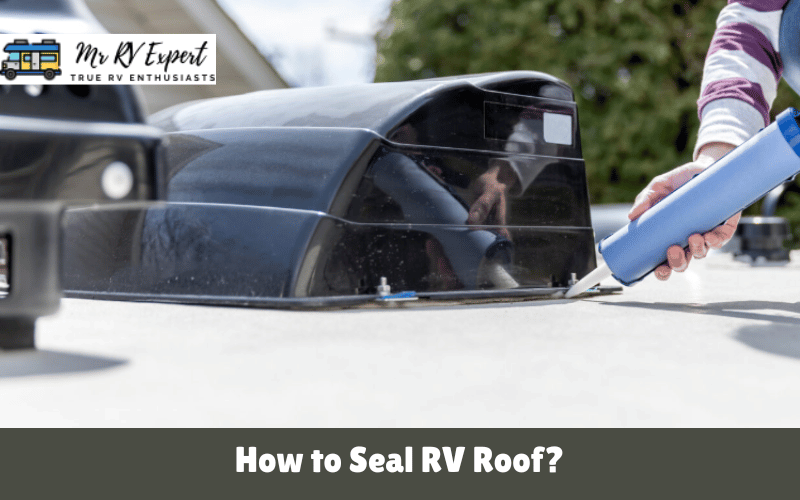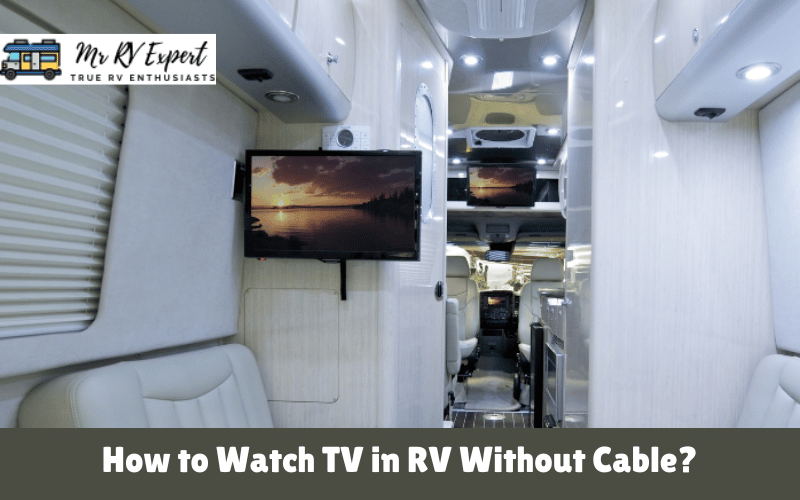If you’re going to be towing a car behind your motorhome, trailer, or travel trailer, you need a supplemental braking system in the form of an electric brake controller. if you want to know How To Select The Best RV Braking System For Your RV this article will help you. It’s not hard to install one, but it is NOT plugged and play – if there is no pre-existing tow package on the vehicle you want to pull behind your RV with this type of setup. In this guide, we’ll provide a comprehensive guide about the RV braking system for your RV and Car.
Table of Contents
Types Of RV Braking Systems
There are several types of RV braking systems available on the market. It all depends on what you require from your system, and how much money you can spend on it.
1.) Air Brakes
Air brakes are the most popular choice since they are very effective in emergency situations, but not everyone likes them for everyday driving. This is because they are more difficult to control while driving around town. The air brakes make some noise, which some people find annoying when parking the vehicle next to their neighbors’ house or facing heavy traffic at a tollbooth. If this doesn’t apply to you – feel free to check out option #2 instead!
2.) Electric Brakes
Electric brakes are easier to operate, responsive and quieter than air brakes. These are great options for those who would like to tow a vehicle and don’t want to be bothered with heavy parking brake pedals and noisy brakes. This system is also less expensive than an air braking system, but electric braking systems generally don’t work as well as an air braking system in emergency situations.
3.) Hydraulic Brakes
Hydraulic brakes are very sensitive and easy to operate as they need much less force (sometimes as little as the pressure of your foot) than air or electric units. Hydraulic brakes are great for people who tow a vehicle on a regular basis – they simply give you more control over your towed unit.
The tradeoff is that hydraulic brakes can cause excessive wear and tear on the motorhome’s own braking system so we recommend only using the towed vehicle brakes when it is absolutely necessary. Using them too often will shorten the life of your rubber brake shoes in your primary braking system.
4.) Electric Over Hydraulic Unit
Electric over hydraulic units are very popular with people who tow frequently because they combine features of both electric and hydraulic braking systems, resulting in excellent performance when towing (especially for heavy loads), yet do not require excessive wear-and-tear on your own motorhome’s brakes.
5.) Air Over Hydraulic Brakes
Air over hydraulic brakes are similar to air brakes but use a separate hydraulic reservoir pedal to operate the brakes on the towed unit. This means that you can maintain good control over both vehicles without having to be concerned about how hard you step on either brake pedal.
The best news is that this system is fully compatible with electric brakes, allowing you to upgrade your towed vehicle without having to change the entire braking system.
6.) Actuated Electronic Brake
Actuated electronic brake control with or without an air compressor is probably the most popular choice for most RVers who tow frequently and only want to invest in one braking system. Using an electronic brake controller (EBC) will give you better control over both vehicles as well as a smoother transition from the motorhome’s hydraulic brakes to those of the towed unit.
An EBC also includes a built-in relay that takes power directly from the RV battery instead of using your RV’s’ electrical system – thus protecting it from being overloaded. There are simply no other components that could be damaged as a result of overloading.
Another great advantage is that the brake controller automatically senses a drop in voltage and applies the towed vehicle’s brakes to slow both vehicles down or stop them. This means you have total control over your towed unit at all times without having to worry about it being overloaded.
7.) Spring Brake System
Spring brake systems are designed for campers who don’t tow very often or just need a simple secondary braking system that gets the job done quietly, effectively, and inexpensively. The best option for this type of braking system is a 9-wire spring brake interface.
Which uses a breakaway cord instead of standard wiring so there isn’t any drilling required. 9-wire spring brake interfaces can also be used with many electric over hydraulic brake units if they don’t already come with their own spring brake system.
IMPORTANT NOTE: Air brakes are very different from air suspensions. Be sure to ask your dealer before making a purchase decision. It’s important that all components work together in perfect harmony (not to mention matching tires), so it is always best to discuss all specifications/requirements with an expert before committing to any purchase(s).
Things to Be Consider Before Buying The Best RV Braking System
A recreational vehicle is a vehicle that you use for holiday trips, camping, or other outdoor activities. Types of RVs can be simple vans to multi-storied tour buses.
An RV needs the best braking system because once it loses control, there could be disastrous consequences. This is why it is important to consider some factors before buying an RV braking system.
1. What type of brakes does the RV have?
RVs can either have disc brakes or drum brakes. Disc brake systems are usually better because they give more stopping power than drums brake systems when driving on wet roads. However, some RVs may only be equipped with drum brakes, so you need to check whether your RV has disc or drum brakes before buying an RV braking system.
2. What color is the existing equipment?
The color of the existing equipment will determine what color of RV replacement parts you should buy to match it with the rest of the vehicle’s bodywork and finishings. If the paint on RV exterior fiberglass is silver/chrome then you’ll probably want silver/chrome fittings for the new system. If your existing equipment is painted in black or dark blue, then you’ll probably want to buy black or dark blue replacements for the new RV parts.
3. What are the dimensions of the existing equipment?
The dimensions of your existing equipment will help determine which replacement components that you need to purchase. For example, if you’re replacing a large drum brake assembly with a smaller one then check that it won’t affect other parts of your vehicle’s brake system – usually this will be fine but double-check first!
4. How much does your RV weigh?
RVs can weigh up to several tons so it’s important to consider what additional braking effect each component has before buying them because adding more powerful brakes may over-stress the braking system if it’s not designed to cope with that level of braking power. For example, some RV parts may offer additional braking assistance by applying brakes more quickly than would be the case under normal driving conditions – but they’ll apply a smaller amount of brake force overall so adding a more powerful part may overload your existing brake components and cause them to fail prematurely.
5. Will you need new RV parts?
If your existing equipment is very worn, then this could indicate potential problems with other components in your local automotive shop near me as well as the wheels or tires that are being used for RV. In such cases, it can be prudent to replace all these components at the same time as installing the new RV Braking system to ensure that your RV continues to be safe to drive.
6. Is the existing braking system working properly for both emergency stops and normal applications?
If you find yourself relying on one particular type of application more than another, then there’s a chance that the current part isn’t up to its job anymore – so it can pay to update your new replacement parts as soon as possible! For example, if you tend to rely more heavily on the emergency stopping power of your brakes (and not use them for normal applications).
Then they may wear out sooner than usual. This is because brake pads are usually designed with some ‘give’ in them – this means that even when applied gently, they still grip slightly which helps prevent undue wear and tear on other parts that may be more expensive to replace.
7. What is the condition of the existing braking system?
The condition of your existing equipment will usually determine which style and size of new replacement RV components you need to buy – so if there’s a problem with any cooling fins, for example, or non-standard accessories such as brake light assemblies then these should be checked carefully before deciding what type and size of new RV Braking system should be used. It might also pay to consider fitting dual circuits (see number 1 above) especially if you regularly tow another vehicle behind your RV because this can place extra strain on your brakes over extended periods!
8. Will the braking system interfere with other components in my automotive shop near me?
If you’re replacing a part with a smaller one, it’s worth checking for any potential interference problems first. For example, if your new braking system interferes with the airflow to your brakes (this can happen if the cooling fins are badly designed or become clogged up) then this may cause overheating and require more frequent replacement of other components – so check carefully!
Some brake systems use fans to bring fresh air into the cooling circuit but if these fail they can increase stopping distances greatly because even though they still apply just as much force onto the rotor itself, there is no airflow through the assembly to help dissipate heat away from it more quickly!
9. What does my RV owner’s manual say about updating my new replacement parts?
This is actually the best source of information you can use because manufacturers usually provide specific instructions for updating new replacement brake components. For example, some systems call for particular types of pads to be bought (usually expensive ones) that are designed to wear more slowly than normal – or they may recommend checking another part like an ABS sensor for any signs of damage before installation.
If your owner’s manual doesn’t mention updating your brake system, then this isn’t necessarily a reason to panic! But it can help if you know what type and size of new RV Braking system will work best with your existing equipment so it’s worth checking either way.
10. Are there other braking systems available in my local automotive shop near me?
Some vehicles which are manufactured today come with more than one braking system fitted as standard, usually on the rear axle – some models of BMW for example have an additional hydraulic brake circuit fitted to their cars, designed specifically for emergency stop. With more vehicles being fitted with different types of brakes each year (for example ABS, EBD, and even some which combine two or more features).
it’s worth checking your RV owner’s manual or asking advice from a dealership if you’re not sure what you should be looking for before placing your order.
11. Are there any new developments in RV Braking technology that I should know about?
Depending on the type of replacement components you need buying, it can be well worth staying up-to-date with the latest advances in RV Braking technology. For example, more and more manufacturers are experimenting with electric brakes of various types but these aren’t a “plug-in” solution for many of the parts they change on older vehicles – so what you’ll need to buy will depend on your make and model of RV. So it’s always worth checking out new developments in order to get more information on which type of braking system is likely to be best for your needs.
12. What else do I need to consider when buying replacement brake components?
There are other factors that can affect how quickly you need to replace your braking system, such as whether you drive more often on unpaved roads, tow a caravan behind you, or have a heavier than average RV! It’s worth getting some idea for this first before you make a final decision because the last thing you want is to be caught out having to pay top dollar for RV replacement braking system parts at short notice…
13. What are my budget limits?
Although it’s usually recommended that brake components are replaced as soon as possible after reaching their wear limits if your budget doesn’t allow for this then just do what you can to keep them working safely until it becomes an emergency! The minimum legal requirement for RV Braking systems in most countries is actually just good enough for stopping distances of around 7 meters or less at 60 km/h without any sign of skidding or vibration under hard braking.
So it may not always be necessary to replace things straight away as long as you’re aware of the risks. Just keep a close eye on things and remember that if your vehicle needs a new RV Braking system soon then it’s usually better to replace all brake components from scratch, rather than trying to update one part at a time!
14. Is braking performance affected by the type of tire I have?
Depending on which country you live in… yes! For example, US law requires conversion from conventional brakes to ABS as standard equipment for motorhomes built after 1991 – but this isn’t true everywhere. It’s worth checking what types of policies are currently in place for your particular country or region before deciding how important safety is where RV braking systems are concerned!
15. How much do parts cost?
The cost of replacement brake components can vary widely depending on the type of braking system you have and where you live. For example, if you’re looking for a full conversion kit that includes calipers, discs, and pads all in one place then prices usually average out at around $370-580 / £270 -450.
While if you just need some new pads or shoes for your existing RV Braking system then you’ll typically pay about $115-450 / £75 -255. This is just a rough guide, though, because prices can vary considerably from one supplier to the next. So always shop around and check out what each company has to offer before making your final decision!
FAQs Of Best RV Braking System
1) Is it legal for me to drive my RV until replacement parts have been installed?
In most countries there are no limits on how long you can drive without replacing broken or worn components in your RV's braking system... but eventually you will be required by law to do this. Even if you do manage to keep something like an ABS brake system working for years after its safe lifespan (which is very unlikely) this won't protect you against prosecution if anything goes wrong with it at any time! So bear this in mind when deciding how soon you'll need to buy RV replacement parts and always choose a reputable supplier for peace of mind.
2) How long will it take me to find the best braking system components?
If you want top value for money then shop around and remember that it's much better to replace all your parts at once - even if some are still working well enough, rather than trying to update one part at a time! If price is no object then order from the company with the fastest delivery service available... or simply go direct to the manufacturer instead since they often offer special deals on whole-vehicle conversion kits which can save money in the long run when compared with buying individual replacement parts.
3) What happens if I ignore my vehicle's warning signs?
In addition to noise from squeaky brakes or squealing disc pads, warning signs to look for include: a lack of brake pedal firmness after pressing down 3-5 times for normal braking, spongy brake pedal feel due to air intake in the hydraulic system via a leak or worn out seals, visible corrosion on metal components and, of course - reduction in braking efficiency including longer stopping distances during hard braking. If you do experience any of these issues then it's time to consider RV replacement parts as soon as possible!
4) Does driving style affect my RV Braking system?
Yes, because abrupt changes in driving style can cause existing problems with your vehicle's current braking system to become much worse very quickly! For example, if you tend to make very short stops and accelerate right away (so as not to hold up traffic) this puts much more strain on the brake pads and moving calipers compared with gradual deceleration... which can force them to work much harder over time.
5) How hard is it to install new parts?
Replacing RV components like ABS disc brakes, drum brakes, or wheel cylinders isn't exactly rocket science! And although you should always hire a mechanic if you're not sure what you're doing, fully trained auto enthusiasts could do it themselves in 2-3 hours tops - including an oil change at the same time for good measure! At least one company offers a free installation service if required... so check their website and call before buying any spare parts to make absolutely sure about their return policy!
Are 'generic' or 'copycat' replacement parts as good as originals?
In a word, no! Otherwise they'd be the real thing with proper RV manufacturer's warranty at a higher price right? So always look for quality OEM (original equipment manufacturer) parts with instructions from the vehicle owner's manual in writing on the packaging. These should be identical in every way so your factory warranty remains valid and you can have peace of mind in case anything goes wrong after installation... but only if you buy from a reputable supplier!
How do I maintain my new braking system?
Always ensure that all fittings are tightened securely before driving any distance and check fluid levels regularly - especially if your braking system uses hydraulic fluids instead of air for example. Use the correct type of brake cleaner to remove build-up and corrosion on metal caliper parts before applying fresh protective lubricant spray afterward quickly to prevent it from happening again in the future! This is particularly important if you live near coastal regions or cold weather climates where salt is used on the roads during winter.
Can I extend my vehicle's service life with yearly maintenance?
Absolutely because this can also help diagnose potential problems before they become serious enough to warrant an expensive trip to the garage! Basic servicing costs less than $100 or so for most models plus another $90 or so per hour (or part thereof) to repair anything found wrong... which means, of course, that you should always use the right tools (and chemicals) to do the job properly!
Will paying more for more expensive RV parts yield better results?
Absolutely yes because some suppliers charge hundreds of dollars for what looks like exactly the same part as another supplier's brand new one for half or two-thirds of that price. The only difference is often packaging... so always check before buying anything by comparing prices and specifications on several different websites if possible before committing your hard-earned cash! A little bit of online research can save you good money in the long run which can be put towards future car parts or accessories perhaps?
Conclusion: How To Select The Best RV Braking System For Your RV
You can find a braking system for your towed vehicle that matches the way you use it. Portable systems let drivers switch between cars, while permanent ones work best if your pickup truck or van is going to stay in one place at home and never leave its side of course! If this sounds like something up your alley.
We recommend doing some online research into various options available so as not to miss out on anything else by getting caught off guard – either by what might have been just right without knowing about them the first time around (we were) OR having too many choices but nope! We hope this guide will help you to find answers to all your questions.
[kkstarratings]
